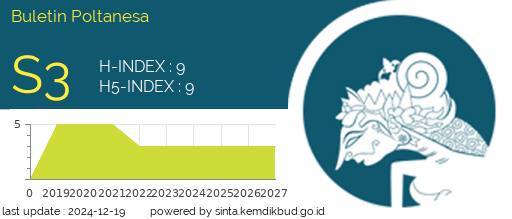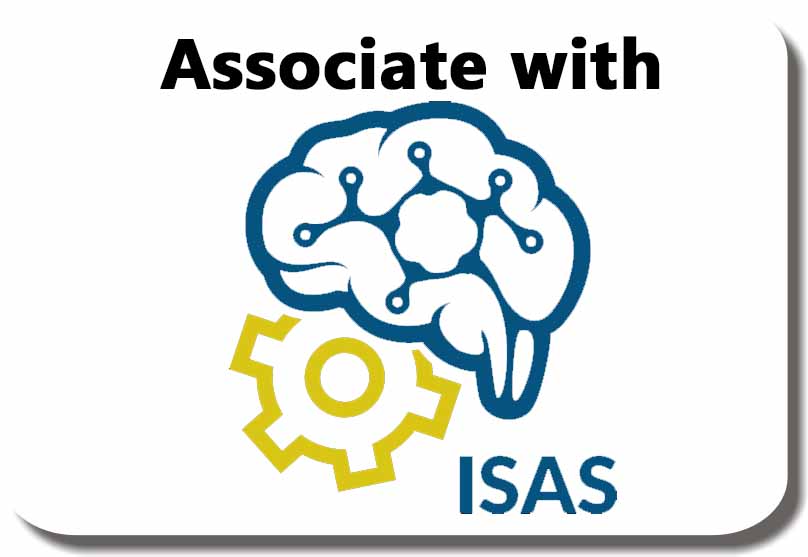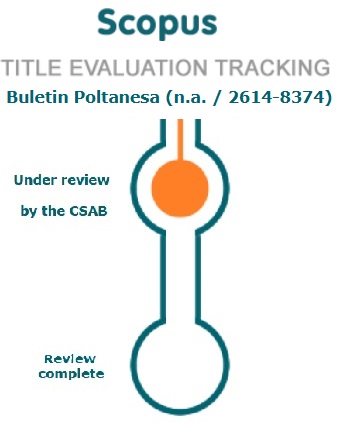Quo Vadis Micro, Small, and Medium Enterprises Competitive Advantage: Evidence from Indonesia
DOI:
https://doi.org/10.51967/tanesa.v24i2.2957Keywords:
Competitiveness, Quality, SEM, MSMEs, Personal NetworksAbstract
This research aims to identify the influence of personal network variables and product quality on the competitive advantage of MSMEs through moderating variables. The data used in this research is primary data in the form of a questionnaire filled in by 167 respondents who have heterogeneity in gender, age, education and information about business. Researchers use Structural Equation Modeling as a method for extracting data. The research results show that all independent and moderating variables have a positive influence on the competitive advantage variable of MSMEs. This is indicated by a t-statistic value that is greater than the t-table with a p-value < 0.05. The validity and reliability indicators through outer loading also show values above 0.6 on average. Therefore, the implications of this research are as follows: The government as a stakeholder must be able to bridge the community to be able to access business capital through networks, business incubators, academia, media, and society The community must have good literacy regarding the quality of a product and product knowledge so that it can have competitiveness in numerous free MSME’s Market, Academics and researchers are expected to accelerate the down streaming of products so that they have greater benefits for the informal sector economy.
References
Adithia, S., & Jaya, M. P. P. (2021). Strategi Pemasaran Digital Produk Minuman Kopi di Masa Pandemi. Journal of Research on Business and Tourism, 1(1), 37. https://doi.org/10.37535/104001120213
Ali, B. J., & Anwar, G. (2021). Porter’s Generic Competitive Strategies and its influence on the Competitive Advantage. International Journal of Advanced Engineering, Management and Science, 7(6), 42–51. https://doi.org/10.22161/ijaems.76.5
Arianto, B. (2020). Pengembangan UMKM Digital di Masa Pandemi Covid-19. In ATRABIS: Jurnal Administrasi Bisnis (Vol. 6, Issue 2).
Armiani, A., Basuki, B., & Suwarno, N. (2021). Teknologi Digital dalam Mediasi Dampak Strategi Bisnis Terhadap Kinerja UMKM di Nusa Tenggara Barat. EKUITAS (Jurnal Ekonomi Dan Keuangan), 5(3). https://doi.org/10.24034/j25485024.y2021.v5.i3.4892
Dwijayanti, A., & Pramesti, P. (2021). Pemanfaatan Strategi Pemasaran Digital menggunakan E-Commerce dalam mempertahankan Bisnis UMKM Pempek Beradek di masa Pandemi Covid-19.
Hilmiana, H., & Kirana, D. H. (2021). Peningkatan Kesejahteraan UMKM Melalui Strategi Digital Marketing. Kumawula: Jurnal Pengabdian Kepada Masyarakat, 4(1), 124. https://doi.org/10.24198/kumawula.v4i1.32388
Kampamba, J. (2015). An analysis of the potential target market through the application of the STP principle/model. Mediterranean Journal of Social Sciences, 6(4S3), 324–340. https://doi.org/10.5901/mjss.2015.v6n4s3p324
Kartini, K. S., & Gede, D. K. (2019). Sentuhan Digital Bisnis (Teknologi Informasi) pada UMKM Studi Kasus : Pemasaran Produk Adi Upakara.
Marfuin, M. (2021). Strategi Bisnis Digital dan Kinerja Perusahaan Pada Usaha Mikro Kecil dan Menengah (UMKM) (Vol. 1, Issue 1). https://journal.uib.ac.id/index.php/combines
Mavilinda, H. F., Nazaruddin, A., Nofiawaty, N., & Siregar, L. D. (2021). Menjadi “UMKM Unggul” Melalui Optimalisasi Strategi Pemasaran Digital dalam Menghadapi Tantangan Bisnis di Era New Normal. Sricommerce: Journal of Sriwijaya Community Services, 2(1), 17–28. https://doi.org/10.29259/jscs.v2i1.29
Melatnebar, B., Wicaksono, B. B., & Kurniawan, K. (2022). Menalar Belanja Pemerintah Daerah Terhadap Produk Domestik Bruto Sektor Pertanian Di Kawasan Priangan Timur Jawa Barat. https://jurnal.ubd.ac.id/index.php/akunto
Mirzanti, I. R., Wijaya, N. C., & Sjarif, R. S. (2022). Marketing Strategy for Premium and Artisan Snack Food Business during COVID-19 Pandemic (2022). European Journal of Business and Management Research, 7(2), 55–62. https://doi.org/10.24018/ejbmr.2022.7.2.1299
Nizam, M. F., Mufidah, E., & Fibriyani, V. (2020). Pengaruh Orientasi Kewirausahaan Inovasi Produk dan Keunggulan Bersaing Terhadap Pemasaran UMKM. Jurnal Ekonomi, Manajemen Dan Akuntansi, 5(2), 101–109.
Priyatna, C., Ari, F. X., Prastowo, A., & Syuderajat, D. F. (2020). Digital Marketing Untuk Usaha Mikro, Kecil dan Menengah (Studi Kasus pada Coffeestrip Bandung). In Desember (Vol. 9, Issue 4).
Putra, R. (2021). Determinasi Kepuasan Pelanggan dan Loyalitas Pelanggan Terhadap Kualitas Produk, Citra Merek, dan Persepsi Harga (Literature Review Manajemen Pemasaran). 2(4). https://doi.org/10.31933/jemsi.v2i4
Putriana, V. T., Yurniwati, Y., & Simitra, E. (2022). Penggunaan Pendekatan Personal untuk Menghubungkan Usaha Mikro “Wan Alan Padang Panjang” dan Target Pasarnya. Jurnal Warta Pengabdian Andalas, 29(4), 417–427. https://doi.org/10.25077/jwa.29.4.417-427.2022
Safitra Fahrun, G. (2020). Pengembangan Jaringan Kelompok Usaha Bersama dalam Mengatasi Permasalahan Perempuan Rawan Sosial Ekonomi di Desa Jayagiri Kecamatan Lembang Kabupaten Bandung Barat (Vol. 02, Issue 2). Desember.
Santi Singagerda, F. I., Oktaviani, R., Budiman Hakim, D., & Reni Kustiari, dan. (2019). Analisis Aliran Investasi dan Perdagangan Pariwisata di Indonesia.
Singh, B., & Jaiswal, D. (2019). Green Marketing: A Marketing Framework of “STP” Towards Eco-Advantage. SMS Journal of Enterpreneurship & Innovation, 2(2). https://doi.org/10.21844/smsjei.v2i2.11142
Sultoni, M. H., Mujaddidi, A. S., & Priyadi, I. H. (2021). Pelaku UMKM Muslim Madura Dalam Menghadapi Era Bisnis Digital : Analisis Peluang dan Ancaman.
Tiya, M., Suari, Y., Luh, N., Sayang Telagawathi, W., & Yulianthini, N. N. (2019). Pengaruh Kualitas Produk dan Desain Produk Terhadap Keputusan Pembelian. Bisma: Jurnal Manajemen, 5(1).
Werthi, K. T., Nyoman, N., Sari, P., Nyoman, P., Putra, A., Astuti, K. M., & Primakara, S. (2021). Digital Ekonomi Bisnis Untuk UMKM Denpasar pada Masa Resesi Ekonomi. In IJCCS: Vols. x, No.x (Issue 1). April.
Wicaksono, B. B. (2022). Pengaruh Tenaga Kerja dan Belanja Pemerintah Daerah terhadap Perkembangan Sektor Pertanian di Kabupaten Cianjur Provinsi Jawa Barat. Buletin Poltanesa, 23(1), 55–60. https://doi.org/10.51967/tanesa.v23i1.1179
Wicaksono, B. B., Satrianto, H., Sulistiyowati, R., & Sutisna, N. (2022). Peluang Usaha di Masa Pandemi Bagi Warga Binaan Lembaga Pemasyarakatan Kelas, Di Lapas Kelas 2 Kota Tangerang. Jurnal Abdimas Universitas Buddhi Dharma.
Widodo, J., & Djaja, S. (2019). Strategi Pemasaran Usaha Mikro, Kecil dan Menengah (UMKM) Batik Magenda Tamanan Kabupaten Bondowoso. JURNAL PENDIDIKAN EKONOMI: Jurnal Ilmiah Ilmu Pendidikan, Ilmu Ekonomi Dan Ilmu Sosial, 13(1), 123. https://doi.org/10.19184/jpe.v13i1.10432
Wuryandani, S., Ismoyowati, D., & Nugrahini, A. D. (2018). STP Analysis in Marketing Pigmented Rice as Functional Food. KnE Life Sciences, 4(2), 128. https://doi.org/10.18502/kls.v4i2.1664
Downloads
Published
How to Cite
Issue
Section
License
Copyright (c) 2024 Buletin Poltanesa

This work is licensed under a Creative Commons Attribution-ShareAlike 4.0 International License.
The copyright of this article is transferred to Buletin Poltanesa and Politeknik Pertanian Negeri Samarinda, when the article is accepted for publication. the authors transfer all and all rights into and to paper including but not limited to all copyrights in the Buletin Poltanesa. The author represents and warrants that the original is the original and that he/she is the author of this paper unless the material is clearly identified as the original source, with notification of the permission of the copyright owner if necessary.
A Copyright permission is obtained for material published elsewhere and who require permission for this reproduction. Furthermore, I / We hereby transfer the unlimited publication rights of the above paper to Poltanesa. Copyright transfer includes exclusive rights to reproduce and distribute articles, including reprints, translations, photographic reproductions, microforms, electronic forms (offline, online), or other similar reproductions.
The author's mark is appropriate for and accepts responsibility for releasing this material on behalf of any and all coauthor. This Agreement shall be signed by at least one author who has obtained the consent of the co-author (s) if applicable. After the submission of this agreement is signed by the author concerned, the amendment of the author or in the order of the author listed shall not be accepted.









